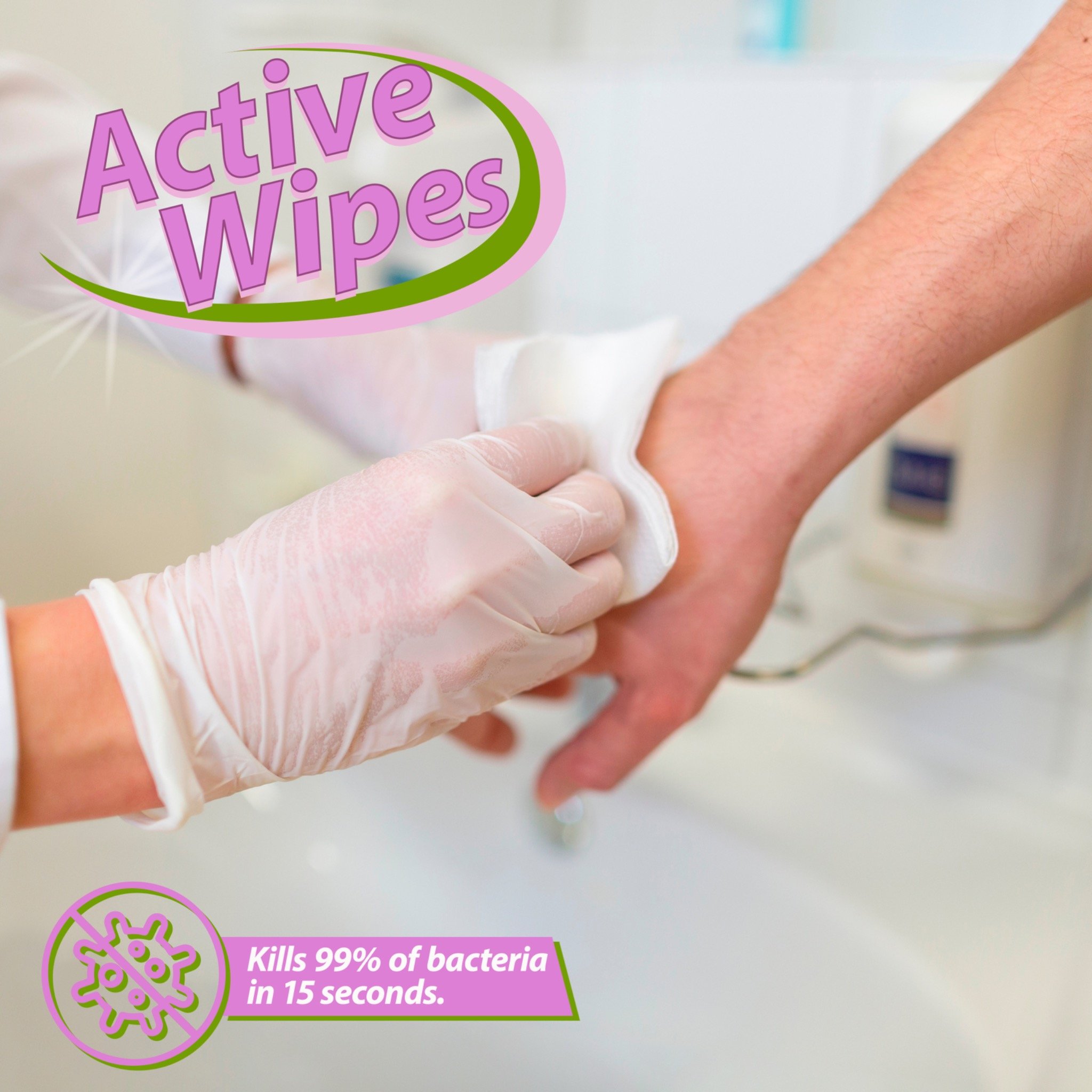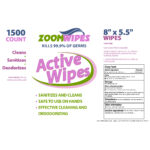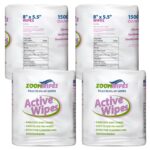Antiseptic wipes are handy for quickly cleaning and disinfecting small wounds, cuts, and scrapes. They are widely used in first aid, hospitals, and homes for their ability to kill bacteria and reduce the risk of infection. In this guide, we’ll explore what antiseptic wipes are, when to use them, how they differ from other cleaning wipes, and answer some frequently asked questions. Try Out our Gym Wipes.
Zoom Wipes Products:
What Are Antiseptic Wipes?
Antiseptic wipes are single-use cloths infused with antimicrobial agents designed to kill bacteria and prevent infection. Unlike disinfectant wipes, typically used for cleaning surfaces, antiseptic wipes are safe for direct contact with the skin and are commonly used for wound care.
Common Ingredients in Antiseptic Wipes
| Ingredient | Description |
|---|---|
| Alcohol (e.g., isopropyl) | Effective against bacteria but may cause dryness on sensitive skin. |
| Chlorhexidine | Broad-spectrum antimicrobial, often used in medical settings. |
| Benzalkonium chloride | Gentle on the skin, suitable for frequent use. |
When and How to Use Antiseptic Wipes
Antiseptic wipes are versatile and ideal for situations where quick cleaning and disinfecting are needed. Here are some recommended uses:
1. Wound care: Ideal for cleaning cuts, scrapes, and small wounds. They help prevent infection by removing harmful bacteria from the skin’s surface.
2. First aid: In first aid kits, these wipes provide quick disinfection before applying a bandage or dressing. Often used to sanitize skin before injections or minor procedures.
Safety and Precautions: Where to Use Antiseptic Wipes
Antiseptic wipes are generally safe for most skin applications, but some important precautions must be remembered.
– Avoid open or deep wounds: Using antiseptic wipes on large or deep wounds can delay healing or cause irritation.
– Do not use sensitive areas: Avoid using sensitive areas such as the eyes, mouth, or private parts.
– Check for allergies: If you’re allergic to certain ingredients like alcohol or benzalkonium chloride, choose an alternative wipe.
Comparing Antiseptic Wipes with Other Cleaning Options
| Comparison | Antiseptic Wipes | Alternative |
|---|---|---|
| Antiseptic vs. Alcohol Pads | Gentler, may include moisturizing agents | Alcohol pads can be harsh, drying out the skin |
| Antiseptic vs. Disinfectant Wipes | Safe for skin | Disinfectant wipes are for surfaces only |
| Antiseptic vs. Antibacterial Wipes | Works on a broad range of microbes | Antibacterial wipes mainly target bacteria |
FAQs About Antiseptic Wipes
– Can I use antiseptic wipes on an open wound?
Antiseptic wipes can be used around minor cuts but should not be applied directly on large or deep wounds, as they may irritate.
– Are antiseptic wipes safe for the skin?
They are generally safe for the skin but may cause dryness if used too frequently.
– What is the difference between antiseptic and disinfectant wipes?
Antiseptic wipes are for skin use, while disinfectant wipes are designed for surfaces and may contain harsher chemicals.
– Can I use antiseptic wipes as toilet paper?
Antiseptic wipes are unsuitable for toilet paper and may irritate sensitive areas.
Choosing the Right Antiseptic Wipe
When choosing antiseptic wipes, consider the following:
– Ingredients: For sensitive skin, select alcohol-free options with ingredients like benzalkonium chloride or chlorhexidine.
– Packaging: Individually packaged wipes are convenient for travel, while larger packs work well for home use.
– Use case: Medical-grade wipes are ideal for wound care; general-purpose antiseptic wipes are good for everyday cleaning.
Final Thoughts
Antiseptic wipes are a versatile, effective, quick and safe wound-cleaning option. You can make the most of these handy first-aid essentials by choosing the right type, following usage guidelines, and observing safety precautions. Remember, while they are great for minor injuries, a healthcare professional should.
Zoom Wipes Products








